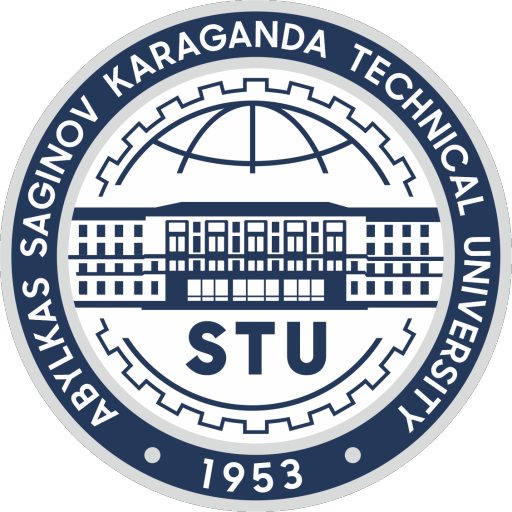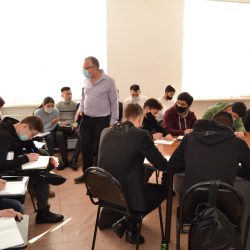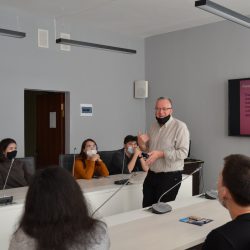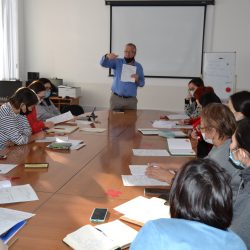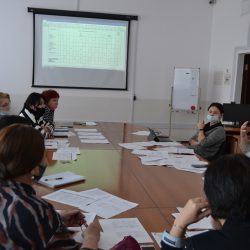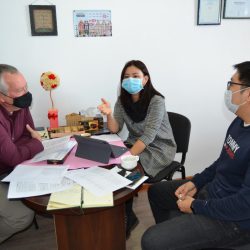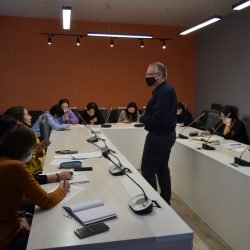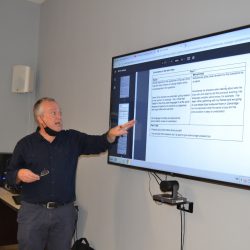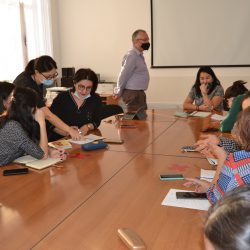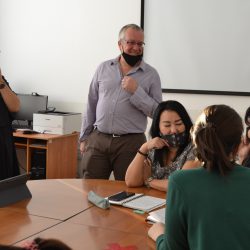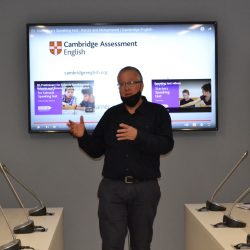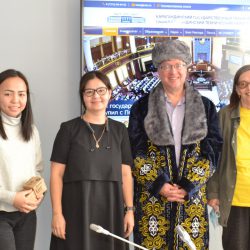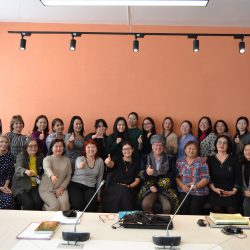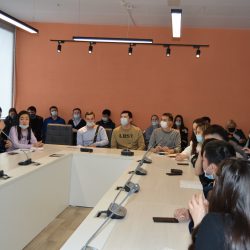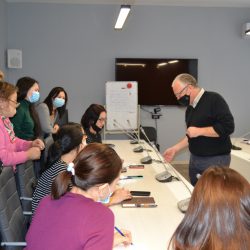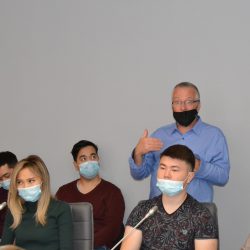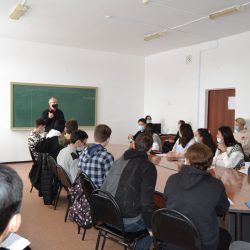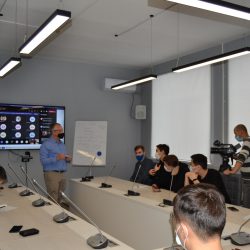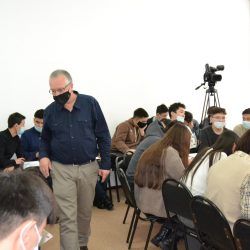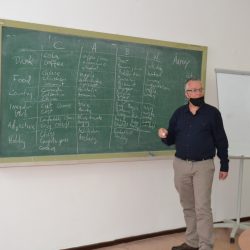The British scholar gave a series of lectures to undergraduate and doctoral students on such core courses as “Academic Leadership and Meaningful Management” and “Intercultural Awareness and Communication,” where participants were able to gain knowledge about the need to develop cross-cultural communication in professional activities, including leadership and management skills and their role in the education system. Mr. Hockley highlighted optimization strategies and shared his valuable experience in the area of “Management for Educational Development” through the promotion of STEM education. The lecture series provided an invaluable learning opportunity for our undergraduate and doctoral students: they were introduced to the underlying theories of intercultural communication and its importance to engineers so that they could use them in research and professional career development.
Andrew Hockley conducted a training session for the teaching staff of the Department of Foreign Languages. Current pedagogical topics and issues in the field of EFL (teaching English as a foreign language) such as: project-based learning, task-based learning, student-centered language learning, criteria language assessment, and co-teaching were addressed during the trainings. Advantageous and effective techniques for introducing students to a new topic, reflection, and feedback were presented during the trainings. Teachers reviewed well-known models of reflection such as PPP (Presentation, Practice, Production), experiential learning cycle, PPU (presentation, practice, use), AL (adult learning) cycle and tried to give feedback in other teachers’ classes. Mr. Hockley also drew attention to questions about goal setting for the experiential learning session. Teachers received information about common types of lesson goals, discussed how they set their lesson goals and how they assess whether the goals were met. The issue of assessing student knowledge, particularly speaking skills, was also brought up before winter exams. Andrew Hockley suggested several methods and ways to organize the criterion-based assessment of students’ speaking skills, namely the use of rubrics with criteria by grade level, which were successfully used by the department staff during the exam.
Thus, the teaching staff of the Department of Foreign Languages, by taking part in Mr. Hockley’s training, improved their methodological skills and took one more step forward in competitive teaching.
Andrew Hockley also conducted practical classes for the first-year undergraduate students, during which our first-year students had the opportunity to practice their speaking skills, natural acquisition of the spoken vocabulary and the basics of grammar. Students had an opportunity to learn the language spoken by our contemporaries (without outdated grammatical constructions and formal expressions, not used in speech); and at the same time to study the culture of another country, full and authentic information about its traditions, interesting information (for example, about holidays, habits, etc.). Classes with a native speaker were not only intensive but also exciting: literally every lesson brings an impressive amount of new vocabulary, information is absorbed in a shorter time, and communication is colored by the originality of his assessments and arguments and an abundance of curious facts that motivate students to learn the language further.
Teaching English in a non-linguistic university is a purposeful process of training a specialist, a future professional who has learned the culture of another nation and knows how to communicate in a foreign language environment, and the Department of Foreign Languages provided students with this unique opportunity to improve their language skills.
